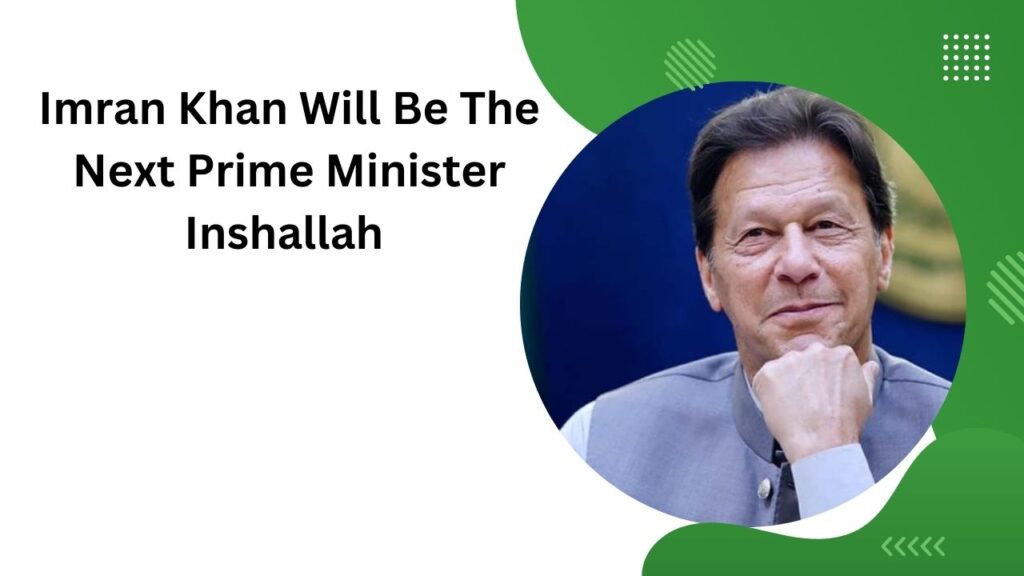Who Will Be The Next Prime Minister Of Pakistan in 2024 is discussed in this blog post. Pakistan is a country that has always been mired in political turmoil and instability. The democratic process has been derailed multiple times in the history of Pakistan, and the country has had a long history of coups and military rule. However, the 2018 general election was a milestone in Pakistan’s political history, as it was the first time that one democratically elected government transferred power to another. Imran Khan, the leader of the Pakistan Tehreek-e-Insaf (PTI) party, emerged victorious in the 2018 general elections and became the Prime Minister of Pakistan. Today, on 12 January 2024, we will discuss in this blog post who will be the next Prime Minister of Pakistan in 2024.
Imran Khan’s Chances of Re-election
Imran Khan was the Prime Minister of Pakistan and has a fair chance of being re-elected in 2024. Khan’s popularity has fluctuated after his victory in 2018. However, his government’s response to the COVID-19 pandemic and economic crisis has been praised by many, resulting in a rise in his approval rating. If his government continues to perform well on the economic front and addresses the issues faced by the people of Pakistan, Khan’s chances of re-election will be high.
Who Will Be The Next Prime Minister Of Pakistan in 2024

The Opposition’s Chances
The opposition party, Pakistan Muslim League-Nawaz (PML-N), is the largest opposition party in Pakistan. However, the party’s fortunes have been declining due to the ongoing corruption cases against its leadership and the recent split within the party. The Pakistan Peoples Party (PPP) is another opposition party that has a strong vote bank in Sindh and parts of Punjab. However, the PPP has struggled to gain traction in recent years due to leadership issues and a lack of a clear agenda. It is unlikely that the opposition will have a clear leader heading into the 2024 general election.
Emergence of New Parties
Pakistan’s political landscape has always been dynamic, and the emergence of new parties cannot be ruled out. Currently, two new parties have emerged, Pakistan Democratic Movement (PDM), a coalition of opposition parties, and Tehreek-e-Labaik Pakistan (TLP), a right-wing religious party. The PDM, which has held mass protests, has been critical of Imran Khan’s government. However, the coalition is yet to present a clear leader or an alternative agenda. TLP, on the other hand, has gained popularity by opposing the government’s decision to release a blasphemous cartoon. However, the party’s extremist agenda and anti-state rhetoric limit its electoral appeal.
Regional Parties and their Impact
Pakistan’s regional parties, such as the Muttahida Qaumi Movement-Pakistan (MQM-P) and the Balochistan National Party-Mengal (BNP-M), have always played a crucial role in Pakistani politics. However, the influence of these parties has declined in recent years due to a lack of leadership and infighting. The PTI government has sought to address the grievances of these parties and has made efforts to address the issues facing the people of Balochistan and Sindh. If the PTI government continues to engage with regional players and address their grievances, it could win their support in 2024.
Coalition Government
Pakistan’s system of government encourages the formation of coalition governments, and it is unlikely that any party will win an outright majority in the 2024 general election. Therefore, the chances of a coalition government are high. It is possible that the PTI government could continue to lead a coalition government in 2024 with support from some of the regional parties, but it is too early to predict which parties would join a coalition.
Conclusion:
Pakistan’s political landscape is always changing, and predicting who will be the next Prime Minister of Pakistan in 2024 is not an easy task. Imran Khan has a fair chance of being re-elected if his government continues to address the issues facing the people of Pakistan. The opposition parties are struggling to find a clear leader or an alternative agenda, and the emergence of new parties could alter the political landscape. The support of regional parties will be crucial in the formation of the next government, and the likelihood of a coalition government is high. The 2024 general election will be a crucial test of Pakistan’s democratic system, and it is imperative that the people of Pakistan choose their next leader wisely.